States ask US Supreme Court to hear Alabama abortion case
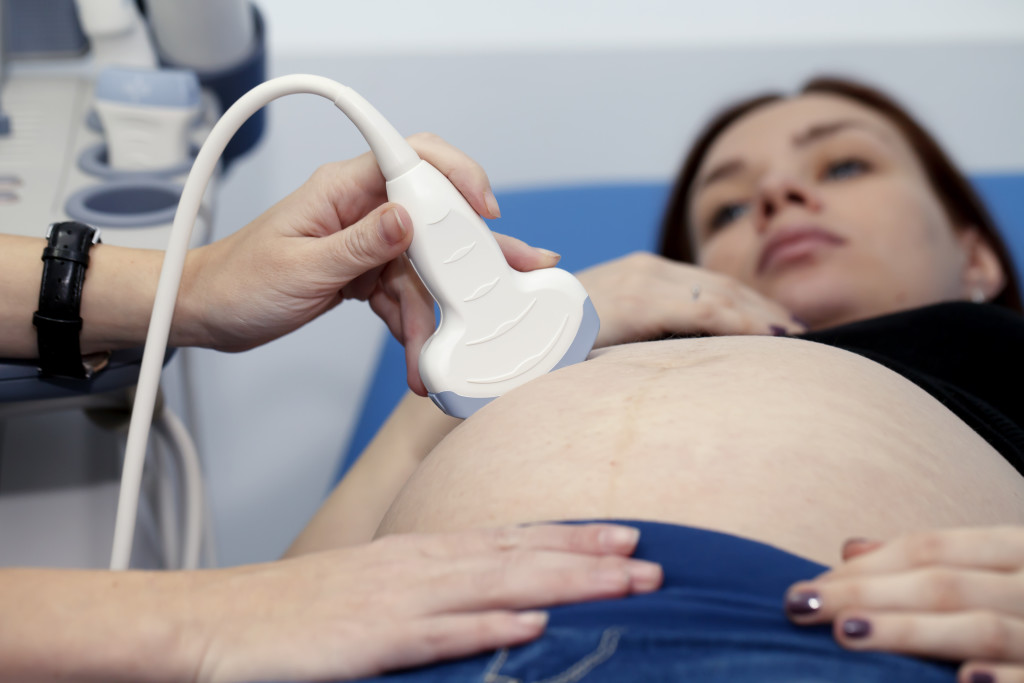
Twenty-one states are urging the U.S. Supreme Court to let Alabama ban a commonly used second trimester abortion procedure. The states filed a brief with the high court Monday asking justices to review the constitutionality of the Alabama law that was blocked by lower courts. Justices haven’t said if they’ll hear the case. The 2016 law banned the procedure known as dilation and evacuation abortions, in which the fetus is removed in pieces with forceps. State politicians used the nonmedical term “dismemberment abortion” to describe the procedure. A federal judge ruled the procedure ban was an unconstitutional restriction on abortion access. The 11th U.S. Circuit Court of Appeals upheld that decision. Several states supporting Alabama, including Kansas, Louisiana and Texas, have tried to enact similar restrictions. Republished with permission from the Associated Press
Bradley Byrne recognizes anniversary of Row v Wade decrying abortion in multiple statements
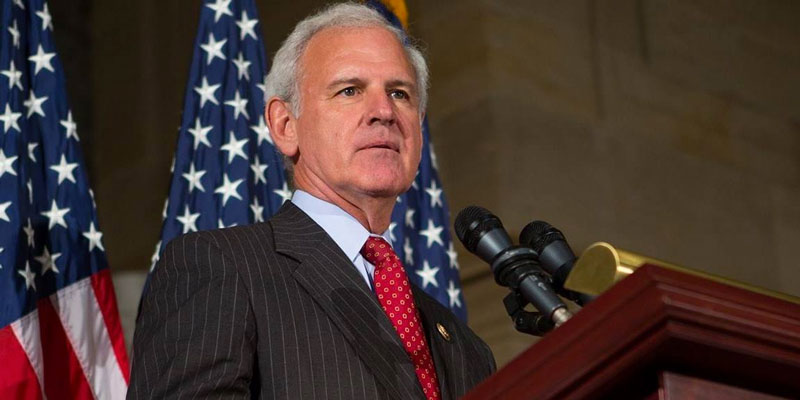
Rep Bradley Byrne, joined Martha Roby and others throughout the nation commemorating the 46th anniversary of the Roe v Wade decision and the March for Life today by reaffirming his commitment to pro-life policies. He said, The sanctity of human life is immeasurable. Since I have been in Congress, I have consistently stood up for the unborn, and I continue to stand up for life. I am proud hundreds of Alabamians, most of them young people, are in our nation’s capital today to stand up for life as part of the March for Life. Those who support pro-life causes support American values, allowing all the opportunity for life, liberty, and the pursuit of happiness. Since the Roe v. Wade decision in 1973, nearly 61 million abortions have been carried out in the United States. That is absolutely unacceptable. I remain dedicated to doing everything I can to ensure we defund Planned Parenthood, permanently end taxpayer funding of abortion, overturn Roe, and ensure all lives are protected. Byrne also tweeted a video version of this message against abortion. The sanctity of human life is immeasurable. Since I have been in Congress, I have consistently stood up for life. Those who support pro-life causes support American values, allowing all the opportunity for life, liberty, and the pursuit of happiness. #ProLife pic.twitter.com/VxxFvEd0iu — Archive: Rep. Bradley Byrne (@RepByrne) January 18, 2019 In a press release today, Byrne listed the pro-life actions he has taken just this year. Re-joined the Congressional Pro-Life Caucus; Sponsored H.R. 369 –the Defund Planned Parenthood Act of 2019, which would place a one-year moratorium on federal funding to Planned Parenthood and increase funding to community healthcare centers that do not perform abortions but provide more comprehensive care; Sponsored H.R. 490 –Heart Beat Protection Act, which bans abortion after a detectible heartbeat; Sponsored H.R. 616 – the Life at Conception Act, which defines that human life begins at conception; Sponsored the Prenatal Nondiscrimination Act (PRENDA), which prohibits sex-selective abortions while protecting women upon whom sex-selective abortions have been performed; Signed a letter to President Trump asking him to veto any funding bill that weakens pro-life protections and any bill that weakens federal policy on abortion. In addition to his video message, Byrne has tweeted other pro-life messages today. I remain dedicated to doing everything I can to ensure we defund Planned Parenthood, permanently end taxpayer funding of abortion, overturn Roe, and ensure all lives are protected. #ProLife — Archive: Rep. Bradley Byrne (@RepByrne) January 18, 2019 The sanctity of human life is immeasurable. Since I have been in Congress, I have stood up for the unborn, and I continue to stand up for life. Those who support pro-life causes support American values, allowing all the opportunity for life, liberty, and the pursuit of happiness. pic.twitter.com/KpHzgO3t2X — Archive: Rep. Bradley Byrne (@RepByrne) January 18, 2019 Thank you @POTUS! #ProLife https://t.co/UvHgen9Fe6 — Archive: Rep. Bradley Byrne (@RepByrne) January 18, 2019 The March for Life is the world’s largest pro-life event, during which more than 100,000 attendees march in Washington, DC.
Martha Roby: Commemorating the 2019 March for Life
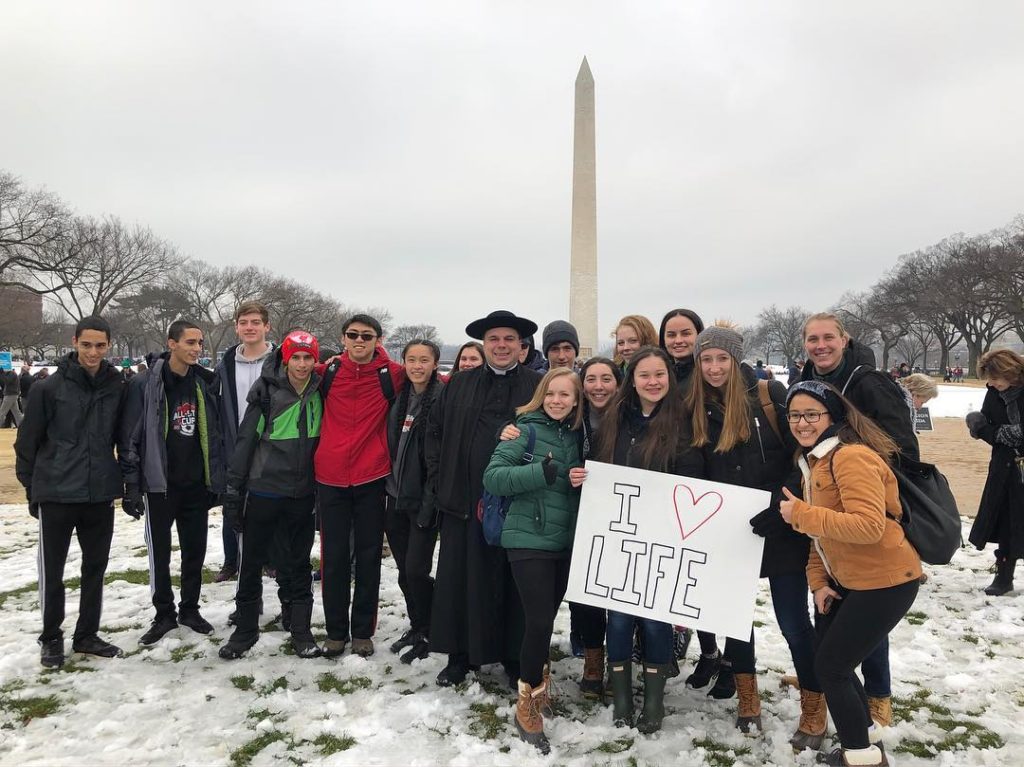
46 years ago this month, the Supreme Court of the United States offered its infamous Roe v. Wade decision that legalized abortion on demand in this country. While many abortion activists celebrate this anniversary as a victory for so-called “women’s health,” it represents a very somber occasion for those of us who advocate for life at all stages. Since that 1973 ruling, more than 60 million unborn children have had their lives ended by abortion. To say this is a tragedy is an understatement. I don’t think it’s any secret that I am unapologetically pro-life. I believe life begins at conception and that our laws and policies should protect it. Of course, not everyone shares my convictions about life or the rights of unborn children, but still, our pro-life momentum is strong – especially around this time each year. On Friday, January 18, thousands of Americans gathered on the National Mall in Washington, D.C., to participate in this year’s March for Life. As you may know, this is an annual event where the pro-life community comes together to advocate for the lives and rights of unborn children. I had the opportunity to speak on the House floor to offer encouragement and thanks to participants of this year’s march. I’m truly grateful for the individuals who made the trip to Washington out of dedication to what I believe is a deeply worthy cause. When Republicans held the majority in both the House and the Senate during the 115th Congress, we made great progress in our pro-life efforts. In the House, we passed a number of important bills to protect the unborn, such as the Pain-Capable Unborn Child Protection Act, which would prohibit abortions after 20 weeks based on the medical evidence that babies can feel pain at this point. We also passed the Born-Alive Abortion Survivors Protection Act to require that medical care be given to any child who survives an attempted abortion and the No Taxpayer Funding for Abortion Act, which makes the Hyde Amendment permanent and government-wide. If you’re not familiar, the Hyde Amendment is a longstanding measure directing that no taxpayer dollars be used to perform abortions. During the Obama Administration, the Department of Health and Human Services finalized a rule that prevented states from redirecting Title X dollars away from abortion providers like Planned Parenthood. In the 115th Congress, we passed H.J. Res. 43, which I proudly cosponsored, to overturn this rule. President Trump signed the measure into law in April of 2017. Of course, now that Democrats gained the majority in the House, our pro-life efforts will likely face significant challenges. So, I recently joined 168 of my House colleagues in sending a letter to President Donald Trump asking him to reject any legislation that would weaken our existing pro-life policies. For some background, Presidents George H.W. Bush and George W. Bush both promised, in writing, to veto any legislation that weakened pro-life laws during their presidencies. I believe this type of commitment is a great way for President Trump to underscore his dedication to the pro-life cause, and I am eager to see him make this promise. Regardless, as I said during my most recent speech on the House floor, my commitment to the people I represent and to all pro-life Americans is that I will continue to use this platform I have been given in Congress to be a vocal advocate for the unborn. This is a very important responsibility, and it’s one I do not take lightly. We’ve made some real progress, but a lot of work remains, and I won’t stop fighting until our laws and policies protect life at every stage. ••• Martha Roby represents Alabama’s Second Congressional District. She lives in Montgomery, Alabama, with her husband Riley and their two children.
Martha Roby delivers ‘pro-life’ speech on House floor
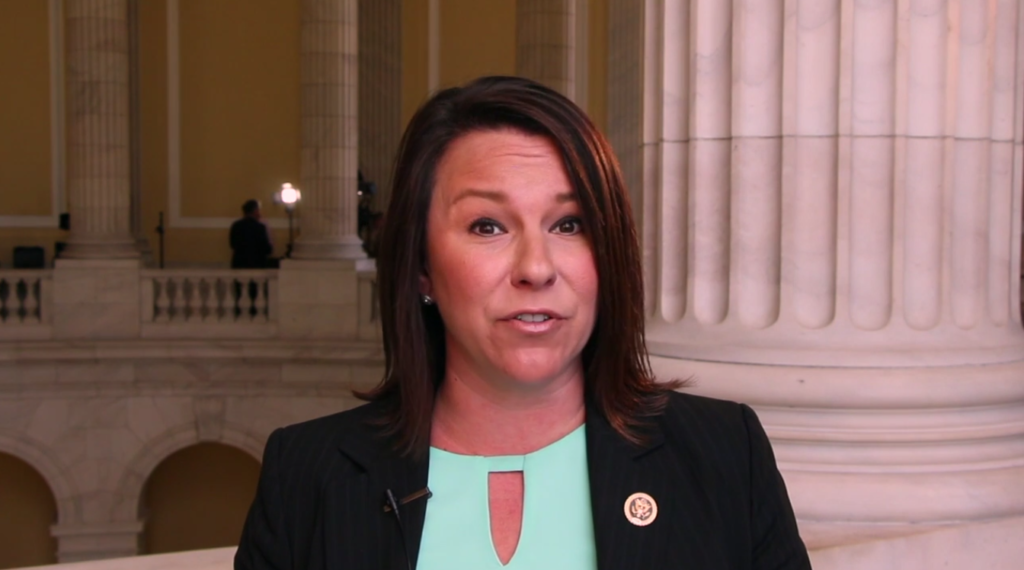
Alabama 2nd District U.S. Rep. Martha Roby took to the House floor today to encourage those taking part in Friday’s March for Life, which commemorates the 45th anniversary of the Roe v Wade decision. Roby said, “I want to take this opportunity to send a message to the thousands of pro-life marchers, especially those from Southeast Alabama I have the privilege of representing in Congress: Thank you for your dedication to this most worthy cause. “It is our responsibility to speak out for those who cannot yet speak for themselves. I am deeply grateful for your commitment to this incredibly important duty, and I, along with my pro-life colleagues here in Congress, stand with you.” Roby is an outspoken pro-life advocate. As a member of the House Appropriations Committee she voted against a budget that would allow funds to be used for abortion and research on human embryos. In a statement last July, she said, “I am also in a strong position fight against funding from being steered towards programs or organizations that I adamantly oppose. Recently when the Appropriations Committee approved our Labor, Health and Human Services, Education, and Related Agencies (Labor-HHS) Fiscal Year 2019 funding bill, I had the opportunity to speak up for those who cannot speak for themselves: the unborn.” Roby is endorsed by National Right to Life, an anti-abortion organization. As the oldest and largest organization of it’s kind in the United States, they work through education, legislation, and political action. In 2018, Alabama passed a pro-life Constitutional Amendment that focused on the sanctity of life. The amendment is “to declare and otherwise affirm that it is the public policy of this state to recognize and support the sanctity of unborn life and the rights of unborn children, most importantly the right to life in all manners and measures appropriate and lawful; and to provide that the constitution of this state does not protect the right to abortion or require the funding of abortion.” The 45th annual March for Life will take place on the National Mall in Washington, D.C. and feature pro-life speakers before the march takes place. There will also be a March for Life in Mobile, Ala. on Friday morning Watch Roby’s remarks below:
J. Pepper Bryars: While hospitals help second trimester babies thrive, courts allow them to be butchered
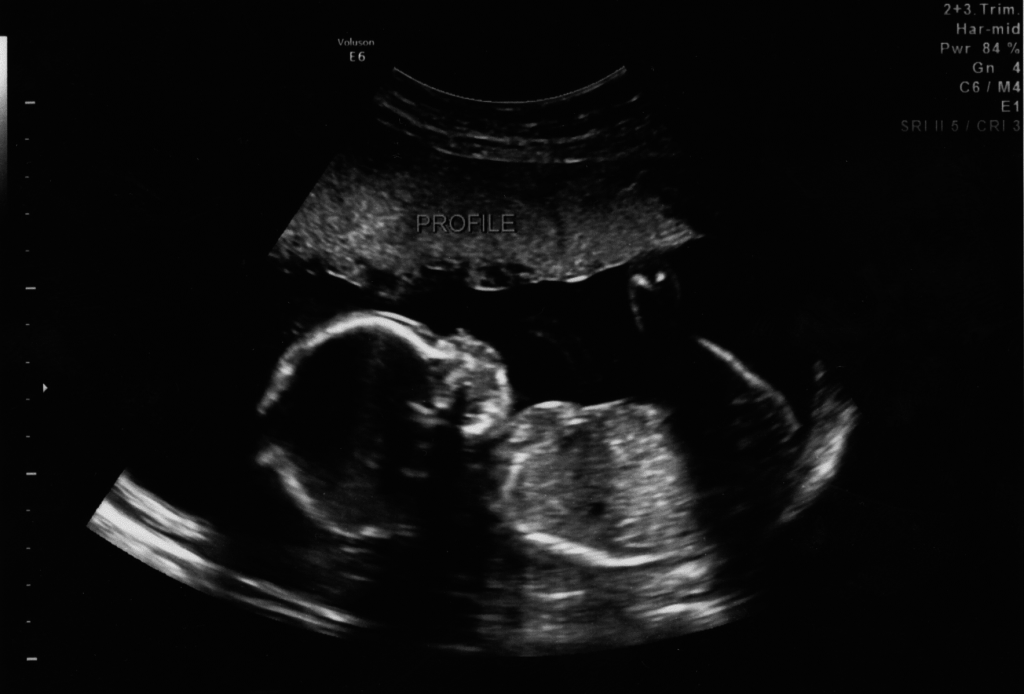
A premature baby born at just 22-weeks was discharged a few months ago from the University of South Alabama Children’s and Women’s Hospital in Mobile. In a touching video posted on AL.com, little Cullen Porter can be seen wearing a tiny black cap and gown on the way home, having “graduated” in August from the neonatal intensive care unit with “no major issues.” Three months later two other extremely premature babies were successfully discharged from Huntsville Hospital for Women & Children. One was born at just 23 weeks and another at 25, according to hospital spokesperson Jennifer Malone. This is wonderful. Advances in medical science allowed these three babies, and many others born prematurely in the second trimester of pregnancy (roughly 14-27 weeks), to survive, thrive, and enjoy life with the rest of us. Yet stagnation in law allows many other healthy babies in the second trimester to be killed through what’s called a “dismemberment abortion.” They’re too developed for simpler procedures, so they’re torn apart and removed from their mother’s womb in bloody, broken pieces. This is horrific. Thankfully, Alabama Attorney General Steve Marshall just asked the U.S. Supreme Court to hear a case concerning our state’s ban on dismemberment abortion that was ruled unconstitutional by lower federal courts. “Federal courts … are already hearing challenges to dismemberment abortion bans in at least five states, including Alabama,” said Mike Lewis, a spokesman for the attorney general’s office. “There is a high likelihood that if not Alabama, then another state could see its dismemberment abortion law challenge reviewed by the Supreme Court in the near future.” Lewis added that Congress outlawed a similar procedure called partial-birth abortion in 2003 and it was upheld by the Supreme Court a few years later. That bodes well for our ban. As described in Marshall’s petition, the only meaningful difference is that during a partial birth abortion a still-living baby is almost completely delivered before a doctor uses a suction device to “vacuum out the child’s brains.” In a dismemberment abortion, a still-living baby is mutilated entirely within the womb by using “clamps, grasping forceps, tongs, scissors, or similar instruments that … slice, crush, or grasp … a portion of the unborn child’s body to cut or rip it off.” “The fetus,” the petition continues, “dies just as a human adult or child would: It bleeds to death as it is torn limb from limb.” If the Supreme Court upheld the partial birth abortion ban, then it’s reasonable to hope they’ll uphold a dismemberment ban, as well. And such a ruling couldn’t come too soon. State data show the gruesome procedure, called dilation and evacuation within the medical community, was performed on 89 unborn children in Alabama during 2016 alone. That was the same year the Alabama Legislature banned the gruesome technique while providing for a health exception to save the life of the mother. “It was the most bi-partisan prolife legislation that I saw during my eight-years in the legislature,” said Phil Williams, a former state senator who co-sponsored the law and who is now with the Alabama Policy Institute. “One pro-choice state senator told me he supported the bill because dismemberment abortion is such a horrible procedure.” Most people feel the same way. During the last election 59-percent of Alabamians voted in favor of an amendment to the constitution declaring that it’s the state’s policy to recognize the rights of the unborn. And national polls have shown that more than 60-percent favor banning second and third trimester abortions. The Alabama Policy Institute will file a brief in support of the state’s position should the justices decide to hear the case. Other organizations and individuals across the state and nation are sure to do the same. Meanwhile, while our state officials appeal to a higher court, our state’s citizens should appeal to a higher power and pray that Alabama, and our nation, forever ends the scourge of dismemberment abortions. J. Pepper Bryars is a senior fellow at the Alabama Policy Institute. Follow him on Twitter at @jpepperbryars.
Alabama asks Supreme Court to review abortion ruling

Alabama is asking the U.S. Supreme Court to review the state’s attempt to ban the most commonly used procedure in second-trimester abortions. State lawmakers voted in 2016 to ban the abortion procedure known as dilation and evacuation. A federal judge blocked the law as an unconstitutional restriction on abortion access. Attorney General Steve Marshall’s office asked the high court Thursday to review an August ruling by the 11th Circuit U.S. Court of Appeals in upholding that decision. Courts have blocked similar laws in Kansas, Oklahoma, Louisiana, Texas, and Arkansas. Court records show 93 percent of abortions in Alabama occur before 15 weeks of pregnancy. For the 7 percent of abortions that occur later, 99 percent are by dilation and evacuation. A statement from Marshall’s office calls the procedure “dismemberment abortion.” Republished with permission from the Associated Press.
Alabama to ask Supreme Court to review abortion

Alabama will ask the U.S. Supreme Court to review the state’s effort to ban the most commonly used second trimester abortion procedure. Alabama Attorney General Steve Marshall’s office asked the court Tuesday for an additional 30 days to file its petition for review. Alabama lawmakers in 2016 voted to ban the abortion procedure known as dilation and evacuation. A federal judge blocked the law as an unconstitutional restriction on abortion access. The 11th Circuit U.S. Court of Appeals in August upheld the decision. Politicians seeking to ban the procedure refer to it by the nonmedical term “dismemberment abortion.” “The constitutionality of a state ban on dismemberment abortion is an important question of national significance. Litigation over similar abortion laws is pending in several other courts,” lawyers for Alabama wrote. Courts have blocked similar laws in Kansas, Oklahoma, Louisiana, Texas, and Arkansas. U.S. District Judge Myron Thompson in 2016 blocked enforcement of the Alabama law, saying the ban would cause Alabama women to lose access to abortion in the state after 15 weeks of pregnancy because of the unavailability of other methods. Alabama, with support from other conservative states, appealed the decision. The 11th Circuit in August upheld Thompson’s decision, although Chief Judge Ed Carnes wrote that “dismemberment” is an accurate description for the procedure. The Center for Reproductive Rights has described dilation and evacuation as the most common abortion procedure in the U.S. in the second trimester. According to court records in the case, 93 percent of abortions in Alabama occur before 15 weeks of pregnancy. For the seven percent of abortions that occur after 15 weeks, 99 percent of them are by dilation and evacuation. Republished with permission from the Associated Press.
Richardson, Snider: Should the progressive movement become pro-life?

Blind spots. We’ve all got them. Some, for example, believe their singing voice to be a divine blessing although it might more accurately be described as a curse. Others assume their Facebook friends want to see their every meal. Still others ignore that they do, in reality, need deodorant. Not all blind spots are this trite, however. History makes that much clear. Alabama is, unfortunately, host to one of the most obvious and horrid of blind spots: the slavery of the Antebellum South. The fact that many slave-owners were faithful church-goers, Sunday school teachers, and reputable members of the community ought to remind us of how even the most evident evils can be hidden from our moral view. Historical blind spots aren’t limited to Alabama, of course. Worldwide aversion to women’s right to vote, German justification for the Holocaust, and even the Pharisaical rejection of Jesus are examples of blind spots in both recent and distant past. The common thread of a moral blind spot, it seems, is this: generally decent people, earnestly desiring to know and act on what is right, completely missing it. That’s the thing about blind spots. We miss them. By their nature we are ignorant of their existence. This means that, without someone pointing them out, I won’t know mine and you won’t know yours. Illuminating these blind spots is a compassionate and worthwhile goal––as long as we are open to confronting our own blurs in vision. Knowing this, we are obligated to point out a major blind spot in the progressive movement: the endorsement of abortion. The progressive movement has prided itself on its support for the historically marginalized and voiceless: women, immigrants, African Americans, etc. There is a real care, a genuine passion, within their ranks to right wrongs that should be encouraging to us all. They desire justice and fairness and, although we may not agree when it comes to the raw policy, that desire should be applauded. When it comes to the most voiceless population, the unborn, the progressive movement fails. Strangely enough, the very rhetoric they decry when levied against minorities is used to justify the killing of yet-to-be-born human beings. In some ways, it makes sense that this blind spot exists within the progressive movement. The battle to ensure women’s voting rights was hard-fought and one that progressives have not forgotten. There is, unfortunately, a lingering suspicion that this battle continues––that men want to control women in whatever ways possible. This suspicion, it seems, has led to an overcorrection in which attempts to eliminate abortion are perceived as anti-women instead of pro-child. Progressives, let’s be clear, this is not a rerun of the right for women to vote. This is about the lives of innumerable unborn children who cannot speak for themselves. This is, in many ways, right in your wheelhouse. Fortunately enough, recent scientific progress makes it easier than ever for progressives to join the pro-life movement. New technologies and scientific studies are consistently showing how early on in development a fetus appears and acts as it is: human. Colleen Malloy, a neonatologist at Northwestern University, stresses this in a recent Atlantic article. She argues that years of study made it “so obvious that these were just developing humans.” Dr. Farr Curlin, a professor of medicine and medical humanities at Duke University, likewise described science’s recent contribution to the debate by saying “ I don’t see any way it’s not an ally to the pro-life cause.” It’s time for the progressive movement to become pro-life. For consistency’s sake, for the sake of unborn children, and for their own viability as a movement, this blind spot needs to be confronted. With compassion, we invite progressives to be true to their stated ideals and support those least able to speak for themselves. ••• Nikki Richardson is Executive Vice President of the Alabama Policy Institute and Parker Snider is Director of Policy Analysis. API is an independent, nonpartisan, nonprofit research and educational organization dedicated to strengthening free enterprise, defending limited government, and championing strong families.
Federal appeals court blocks Alabama anti-abortion law

The 11th Circuit U.S. Court of Appeals in Atlanta blocked Alabama anti-abortion legislation on Wednesday, that would have outlawed a commonly used second-trimester dismemberment abortion procedure. The legislation, SB363: the Unborn Child Protection from Dismemberment Abortion Act, originally passed in 2016 and called for a ban on dilation and evacuation abortions; during which the fetus is removed in pieces with forceps. This type of procedure accounts for approximately 95 percent of all abortions in the second trimester. The legislation also allowed an exception in the event of a “serious health risk to the mother.” Executive director of the American Civil Liberties Union of Alabama, Randall Marshall told the Associated Press that the ruling means “Alabama politicians can’t put an “ideological agenda” over a woman’s health and decision-making.” “I am disappointed that the 11th Circuit sided with the lower court in this case, but it is encouraging that the court recognized the State’s important and legitimate interests in ending barbaric abortion procedures—in this case, procedures that literally tear apart babies living inside their mothers’ wombs,” Attorney General Steve Marshall said in a statement. “Our legal team is carefully considering whether we will petition the Supreme Court for review of this case. We expect to reach a decision soon.” In June of 2016 the ACLU filed a lawsuit against the restrictions, saying they would dramatically cut abortion access and close the state’s two busiest clinics — the West Alabama Women’s Clinic in Tuscaloosa and the Alabama Women’s Center in Huntsville. According to the Alabama Department of Public Health, the clinics in Huntsville and Tuscaloosa performed 72 percent of the 8,080 abortions in Alabama in 2014. Scheduled to take effect on Aug. 1 of 2016, U.S. District Judge Myron Thompson temporarily blocked the enforcement of the new law in July of that year.
2018 statewide election ad roundup: August 10 edition

The November 6 general election is less than 100 days away and Alabama’s candidates have taken to the internet and the airwaves with campaign ads in hopes of swaying Yellowhammer State voters to their side. This week, only Democratic gubernatorial candidate Walt Maddox released a new ad. Maddox has called Governor Kay Ivey to debate him several times, and each time she’s dismissed his proposals saying; “When he finishes debating himself he can talk.” In the ad, an announcer addresses an empty debate podium labelled “Kay Ivey,” asking wether or not she stands by her position of Maddox being inconsistent and non-committal on several issues including abortion, gun control, and confirming Brett Kavanaugh as a new Supreme Court Justice. The empty podium never answers; leaving the announcer to ask “Governor Ivey? Governor?” Maddox then responds to the question himself, securing his positions on all issues. “I am a pro-life democrat,” Maddox says. “Being pro-life means that we must also invest in our healthcare and education systems.” “I believe in the second amendment, and like most Alabamians I believe in universal background checks,” Maddox continues. “And when it comes to Judge Kavanaugh, lets let the United States Senate do their job. Lets trust in Doug Jones and Richard Shelby to make the decision they were sworn to do.” Gubernatorial ads Democrat Walt Maddox: Title: Debate Topic #1: Abortion, Gun Control, and U.S. Supreme Court Published: August 9, 2018 Tone: Assertive
Abortion rights could be litmus test for high court nominee

Republican Sen. Susan Collins, a key vote on President Donald Trump‘s pick for the Supreme Court, said Sunday she would oppose any nominee she believed would overturn the landmark Roe v. Wade decision that legalized abortion. The White House is focusing on five to seven potential candidates to fill the vacancy of retiring Justice Anthony Kennedy, a swing vote on the court. The Maine senator said she would only back a judge who would show respect for settled law such as the 45-year-old Roe decision, which has long been anathema to conservatives. “I would not support a nominee who demonstrated hostility to Roe v. Wade because that would mean to me that their judicial philosophy did not include a respect for established decisions, established law,” Collins said. Such a judge, she said, “would not be acceptable to me because that would indicate an activist agenda.” Trump spent the weekend at his New Jersey golf club conferring with his advisers, including White House counsel Don McGahn, as he considers his options to fill the vacancy that might make precedent-shattering court decisions on abortion, health care, gay marriage and other issues. The president told reporters Friday that he was homing in on up to seven candidates, including two women, and would announce his choice on July 9. Trump is expected to begin his search in earnest this week at the White House and said the process could include interviews at his golf club before he reaches a final decision following the Fourth of July holiday. During his 2016 campaign and presidency, Trump embraced anti-abortion groups and vowed to appoint federal judges who will favor efforts to roll back abortion rights. But he told reporters on Friday that he would not question potential high-court nominees about their views on abortion, saying it was “inappropriate to discuss.” The Supreme Court legalized abortion in 1973, but anti-abortion advocates hope Roe v. Wade will soon be overruled if Trump gets the chance to appoint a justice who could cast a potentially decisive vote against it. Without Kennedy, the high court will have four justices picked by Democratic presidents and four picked by Republicans, giving Trump the chance to shift the ideological balance toward conservatives for years to come. Both Chief Justice John Roberts and Justice Neil Gorsuch, Trump’s first pick to the high court, have indicated more broadly that they respect legal precedent. On Sunday, Leonard Leo, an outside adviser to Trump on judicial nominations, said he expected Trump to select a nominee who is mindful of precedent but who is also more “originalist and textualist.” That judicial approach typically involves a more literal interpretation of the Constitution, and not reading into the Constitution language that doesn’t explicitly appear. Roe, for instance, relied on a right to privacy, which is not explicitly mentioned in the Constitution. Possible nominees being eyed include Thomas Hardiman, who serves alongside Trump’s sister on the Philadelphia-based 3rd U.S. Circuit Court of Appeals, and Raymond Kethledge, a federal appeals court judge who clerked for Kennedy. Also of interest are Amul Thapar, who serves on the federal appeals court in Cincinnati; Brett Kavanaugh, a former clerk for Kennedy who serves on the federal appeals court in Washington, D.C.; and Amy Coney Barrett, who serves on the federal appeals court in Chicago. Echoing Leo’s view, Sen. Lindsey Graham, R-S.C., a member of the Judiciary Committee, said he didn’t think Trump would be overly focused on the Roe ruling. “You don’t overturn precedent unless there’s a good reason,” Graham said. “I would tell my pro-life friends: You can be pro-life and conservative, but you can also believe in ‘stare decisis,’” he said, citing the legal term involving legal precedent that means “to stand by things decided.” Republicans hold a narrow 51-49 majority in the Senate, and it’s even closer because of the absence of ailing Sen. John McCain of Arizona. Even though Mitch McConnell changed Senate rules last year to allow confirmation by simple majority, if Democrats hold together, he cannot afford defections. Vice President Mike Pence can be called on to break a tie. Collins appeared on ABC’s “This Week” and CNN’s “State of the Union,” Leo spoke on “Fox News Sunday” and Graham was on NBC’s “Meet the Press.” Republished with permission from the Associated Press.
Pro-life group warns voters against Walt Maddox: he’s ‘unwilling to fight to defend the unborn’

An Alabama pro-life group, Alabama Citizens for Life, is warning pro-life voters about voting for Walt Maddox in the November general election saying he is “entirely unwilling to fight to defend the unborn or oppose his party’s radical pro-choice agenda.” On Thursday the group sent out a news release claiming Maddox is “charading” as a pro-lifer and that if elected, Alabama babies who make it to 22 weeks could lose their legal protection of the right to their lives. The group also compares Maddox to Alabama’s newly elected senator Doug Jones. During his campaign for U.S. Senate, Jones went on record saying “the law for decades has been that late-term procedures are generally restricted except in the case of medical necessity. That’s what I support.” However, when H.R. 36: The Pain Capable Unborn Child Protection Act came before the U.S. Senate for a vote to be brought to the floor, Jones voted against it, essentially killing the bill. “When it comes to protecting innocent human life, you either have a track record like Governor Kay Ivey or you have campaign promises like Doug Jones,” said the release. “All you will get is a candidate who falls in line with the entrenched and well financed pro-abortion lobby. Over the past several months, Democratic candidate for Governor Walt Maddox has been quick to label himself ‘pro-life’ but when pushed for more specifics, he evades the issue and calls it a ‘distraction.’” “The fact is Walt Maddox has refused to state he will support legislation that bans late term abortions, he will not commit to defunding Planned Parenthood, and he has repeatedly stated he will not try to fight any federal pro-abortion laws,” continued the release. “In other words, Maddox is entirely unwilling to fight to defend the unborn or oppose his party’s radical pro-choice agenda including abortion through all 9 months of pregnancy.If Maddox is elected, it becomes a reality that Alabama babies who make it to 22 weeks could lose their legal protection of the right to their lives.” The group warns pro-life voters to not be fooled by Maddox, saying that he’s using the term “pro-life” as campaign slogan, but will refuse any legislation to actually change any laws on abortion in the state.


